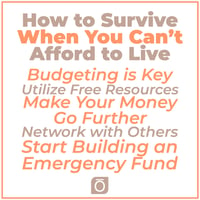Being broke is never easy, especially when you’re just starting out. It can be a real challenge to...
Struggling with Addiction while Trying to Hold Down a Job
Blog Introduction: Addiction is a tough battle and trying to hold down a job while fighting it can seem like an impossible task. You might feel overwhelmed and alone, but you don’t have to face it on your own. Today more than ever, companies are offering help in terms of employee assistance programs for their employees who are facing tough problems. This article will explain how these programs work and how they can help you if you are struggling with addiction while trying to keep your job.
What is an Employee Assistance Program (EAP)?
An Employee Assistance Program (EAP) is a workplace benefit which provides confidential counseling and other resources to employees who need help dealing with personal or professional issues such as addiction. EAPs typically provide free access to counselors or therapists who specialize in addiction, mental health, family dynamics, and other areas of human behavior. The services may be provided over the phone or in person, depending on the company’s program.
The Benefits of Using an EAP
Using an EAP has many benefits for those struggling with addiction while trying to hold down a job. It can provide access to confidential counseling that can help individuals manage their addictions without fear of repercussions from their employer or coworkers. Additionally, EAPs often provide referrals for further treatment such as rehabilitation centers and support groups. With the right care plan in place, individuals can get the support they need without jeopardizing their employment status or risking potential judgment from their peers at work.
How Can I Find Out About My Company’s EAP?
Most companies will have an onboarding packet that explains their benefits package which includes information about their EAP program if they have one. If your company doesn’t have this information available online, then contact Human Resources directly to ask about the program and what kind of assistance is offered through it.
Managing Stress Levels
Stress is one of the biggest triggers for relapse among those in recovery from addiction. Make sure you prioritize self-care by taking time for yourself each day—whether it’s just 10 minutes or an hour—to do something that helps reduce stress levels. This could include anything from reading a book or going for a walk/run outside, doing yoga or meditating — whatever helps you manage stress in healthy ways should become part of your daily routine. It’s also important to stay connected with supportive people in your life who can provide emotional support when needed. And if at any point you feel overwhelmed or like things are becoming too much for you, don’t hesitate to reach out for professional help immediately.
Know When To Say No
When recovering from addiction, it is important to know when and how to say “no” – whether it’s saying no to going out drinking after work with colleagues or simply not taking on extra tasks at work because you don’t have enough time or energy for them right now – saying “no” can be incredibly helpful in maintaining balance in your life during this time of transition into sobriety and long-term recovery from addiction. Lastly, don’t forget that taking care of yourself is essential if you’re going through any kind of difficult situation; make sure you get enough restful sleep every night so that your brain has enough time to process all the changes happening in your life right now with both work & recovery!
If you are struggling with addiction while trying to hold down a job, there are resources available that can help you get the support you need without jeopardizing your employment status or risking potential judgment from your peers at work. An Employee Assistance Program (EAP) is a workplace benefit that provides confidential counseling and other resources for those facing tough personal or professional issues such as addiction. Many companies now offer EAPs so check with Human Resources at your company if you think this type of program could help you find peace amidst the chaos of addiction and employment struggles! Don’t go it alone! Help is out there for those who seek it

